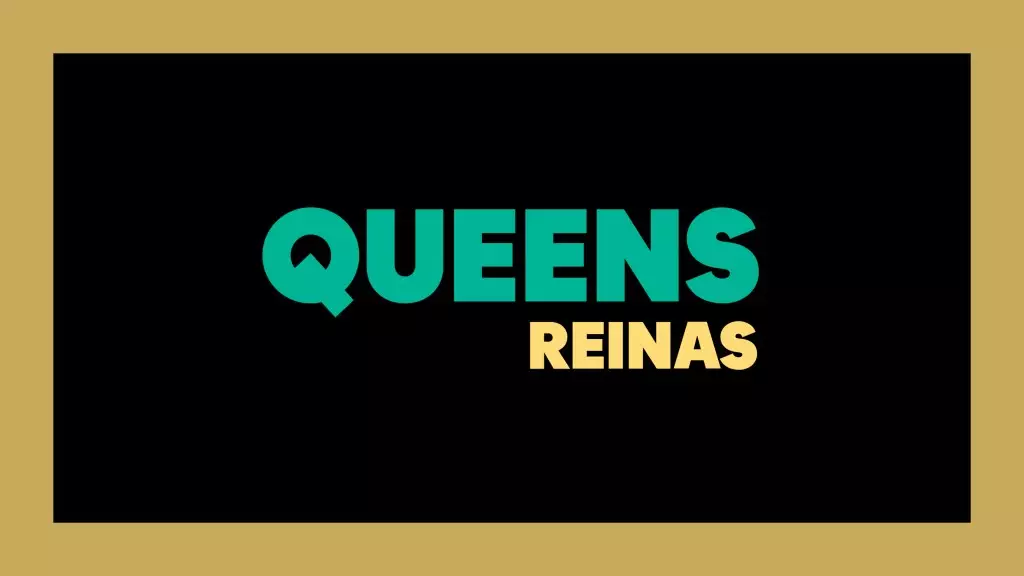Queens, the film that represents Switzerland in the race for the International Feature Oscar, weaves a poignant story set against the socio-political background of 1992 Peru. Directed by Klaudia Reynicke, who has personal history tied to both Peru and Europe, this film transcends cultural boundaries through its narrative and artistic expression. Reynicke left her homeland at the tender age of ten, and through this project, she sought to establish a profound connection with her roots that had long remained estranged. “I had a need of going back to Peru and shooting something in Spanish,” she mentioned, illustrating her quest for identity that resonates deeply with anyone who has experienced cultural displacement.
In a panel discussion at Deadline’s Contenders Film showcase, Reynicke articulated the transformative nature of cinema, stating, “Now that I have done it, I can see that it was actually very important this reconnection.” Through her storytelling, she is not merely recounting her own life but rather exploring the intricate fabric of familial relationships, love, and the struggle of leaving one’s homeland. This thematic richness makes Queens not just a cinematic piece but a soulful exploration of identity and belonging.
At the heart of Queens lies the narrative of single mother Elena, who stands at a crossroads in her life, contemplating an escape from her turbulent surroundings in Peru. Much like Reynicke, Elena’s journey is one of both physical and emotional migration, compounded by the complex dynamics within her family. The character must seek consent from her estranged partner, Carlos, to allow their daughters, Lucía and Aurora, to leave. This tension between departure and connection encapsulates the central struggle of the film.
Carlos, portrayed by Gonzalo Molina, is depicted as a conflicted figure—a father striving for redemption who, despite being largely absent, endeavors to re-establish a bond with his daughters. He often refers to them as “queens,” a term laden with irony given his struggles with self-worth. Molina characterizes Carlos as “a broken man” battling the guilt of his past decisions, striving to mend the fractures in his family, albeit clumsily. His attempts at reconciliation lay bare the challenges many face when seeking forgiveness, particularly when the scars of abandonment run deep.
The performances of the young actresses who portray Lucía and Aurora add depth and nuance to the film’s exploration of familial complexities. Luana Vega, who embodies Aurora, reveals the burden of resentment carried by her character, particularly in contrast to her sister who holds a different perception of their father. This dichotomy highlights the varied emotional resonances that parental absence can evoke in children. Both sisters must navigate their feelings of love, anger, and acceptance in their interactions with Carlos, an emotional upheaval further intensified by their impending departure.
The film does not dwell solely on the negativity associated with abandonment but presents a profound narrative where reconciliation occurs. Reynicke’s framing of the family showcases the warmth of emerging connections, portraying moments of intimate togetherness before the family faces an inevitable separation. “When you feel that this group of people is becoming a family finally, and the camera embraces them, that’s when you know there is going to be a big separation,” she reflects, offering insight into her directorial vision. This embrace of complexity reflects a broader commentary on life—the notion that endings can accompany growth and newfound love.
Queens emerges as a powerful testament to the resilience of the human spirit. It acknowledges the pain of separation while celebrating the bonds of love that can emerge even in tumultuous circumstances. Reynicke’s ability to infuse humor into a predominantly dramatic narrative speaks volumes about her understanding of the human condition. The film’s accolades, including the Grand Jury Prize at Sundance and Best Screenplay at the Festival de Lima, underscore its impact and relevance in contemporary cinema.
As it stands, Queens is not just a recounting of Peruvian experiences; it is a universal tale of family, identity, and the search for belonging. Through the lens of Reynicke, audiences are invited to ponder their own connections to family and heritage, making the film an important addition to the discourse surrounding immigration, cultural identity, and personal redemption. This journey back to her roots has not only shaped Reynicke as a filmmaker but has also provided viewers with a window into the importance of understanding where we come from as we navigate our paths forward.

Leave a Reply